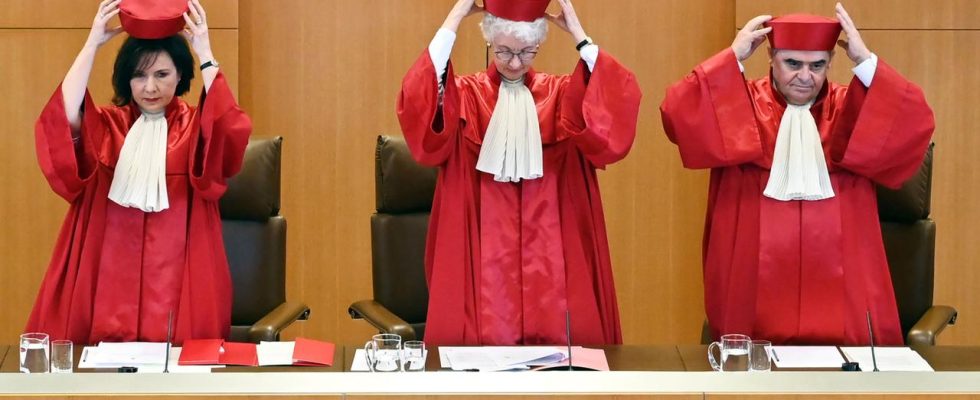The Federal Constitutional Court has declared the second supplementary budget for 2021 unconstitutional and void. How the court argues and why the ruling could be groundbreaking.
The traffic light coalition has a massive problem with this decision. Because now it is missing 60 billion euros, which it has firmly planned for many climate protection projects – for example for the renovation of buildings or electromobility.
The 60 billion euros in question were originally intended to better deal with the serious consequences of the Corona crisis. An exception to the debt brake was made for this purpose, which is constitutionally permissible in emergencies.
Constitutional Court tilts Supplementary budget
However, the money was not spent during the pandemic. Last year, the traffic light coalition moved the 60 billion into a climate fund, the “Climate and Transformation Fund” (KTF). To this end, the Bundestag adopted a supplementary budget with the votes of the traffic light factions in 2022, retroactively for the 2021 financial year. The CDU/CSU faction sued against this. She considers the traffic light coalition’s actions to be unconstitutional.
The Federal Constitutional Court has now decided that the traffic light coalition’s actions violated the Basic Law. On the one hand, the legislature violated various principles that apply to the adoption of federal budgets.
Violation of several principles
One of these principles is: If the Bundestag passes a supplementary budget, then it cannot decide retroactively for the previous year, said the Vice President of the Federal Constitutional Court, Doris König. A supplementary draft must therefore be passed by parliament by the end of the relevant financial year: “A supplementary budget passed after its period of validity has expired in the following year is no longer a permissible and expedient instrument for retrospectively changing the completed budget implementation.”
Another point of criticism from the Constitutional Court: The legislature did not adequately justify the reallocation of the 60 billion euros to the climate fund. Background: The strict debt brake according to Article 115 of the Basic Law may only be deviated from in emergencies and crisis situations. Only then is greater new debt permitted.
If the legislature makes use of this, then it must explain its actions – that is, justify and explain – according to the Federal Constitutional Court.
Connection “not sufficiently explained”
The traffic light justified its budgetary maneuver in a relatively general way by saying that investments in climate protection projects were intended to mitigate the economic consequences caused by the corona pandemic. However, this was not enough for the Constitutional Court. The court requires that there be a connection between the crisis and the means used to address it. And the legislature must justify this connection very precisely.
But this did not happen here, said Vice President König. “In the present case, the legislature did not adequately explain the causal connection between the identified emergency situation and the crisis management measures financed by emergency borrowing. This applies in particular with regard to the necessity of the measures specifically planned with the Climate and Transformation Fund.”
Interpretation of the debt brake
According to the ruling, the supplementary budget law that the Bundestag passed last year is void because it was passed in an unconstitutional manner. The verdict now creates a huge financial gap. The coalition and the federal government will now have to explain how the 60 billion gap will be closed. If this does not succeed, investments in numerous climate protection projects would be called into question.
In addition, with its ruling, the Federal Constitutional Court decided for the first time how the debt brake in the Basic Law should be interpreted – and what conditions are attached if the legislature wants to deviate from it, i.e. want to incur more new debt than is usually permitted.
If the legislature takes this route in an emergency situation, it will have to justify it very carefully in the future.

